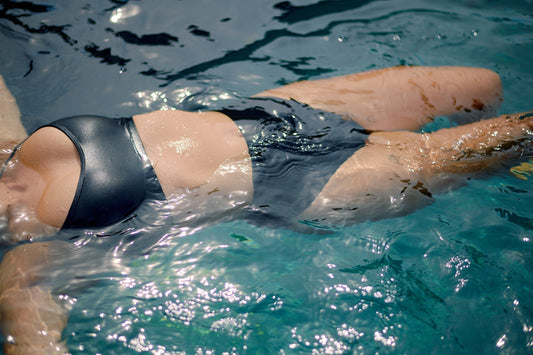
Making Bad Art Is An Act Of Resistance And Self-Care
Ariane Bell VilaI’ve been a voice and piano teacher for years, and there’s an exercise that I use to help with ear training which can effectively be reduced to “try to draw the shape of the melody you hear as I play/sing it.” It’s very low stakes, and can be really helpful for both me and the student. The student gets to practise visualising melodic lines, and I get to see how they do so, which is really helpful for communicating ideas as I get a little glimpse into how they think and see the world.
Something that I’ve noticed over my years of teaching is that young students get really excited by this exercise. They get to draw in a music class! They get to pick their favourite colour and tell me why it's their favourite! They also often want to show me something they’ve been practising drawing - a fairy, a dinosaur, a dog - it’s a lot of fun.
Students that are older (and by older I mean anywhere from pre-teens all the way to adults) are often more shy about this exercise. I’ve even had some respond “oh, but I’m not good at drawing” even though, if you reduce the exercise to what it really is, all I’m asking them to do is draw me a weird squiggly line.
There’s a really tragic idea that we’re taught as we grow which is this: “In order to justify practicing an art form (any art form), I must be - not just good - but great at it”.
It’s an awful mentality, this idea that you have to be skilled at something in order to enjoy it. Making art, singing, dancing, writing, acting, they’re all forms of creative expression that allow us to connect emotionally with others and, perhaps most importantly, our own selves.
This also comes hand in hand with the idea that artists are just naturally talented and have always had a knack for art. While it’s true that, as kids, some people might have a certain aptitude for different art forms, what really makes “the greats” stand out over time is practice. Yes, Mozart was an incredibly talented child, a prodigy, if you will. He was also essentially not allowed a childhood because his father effectively made him spend all his time practising, honing his talent, so that he could parade him and his talent around Europe.
Any “talent” I have with regards to music is really just so many years of practice, coaching, performances and competitions, an abundance of tears, and so. much. money. You can learn any skill the way you learn to walk. It’s all repetition, failure, more repetition, and, eventually, just muscle memory.
What this idea of “natural, professional, prodigy level, talent” actually is, is a form of gatekeeping. In a society where the arts are devalued and removed from schools the second anyone even thinks of budget cuts, only those with disposable income can afford lessons and all the fees that come with them. Since this is the case, many parents will typically only sign up their kids for lessons if they show an “above average” aptitude or enthusiasm for them. (Or, in the case of music, because it’s been shown to maybe help with math).
Taking the time to make art and sing just for yourself is a powerful form of resistance. It’s a way to take up space in a world where certain people have deemed that the only art that’s allowed to exist is the art that’s “good enough” to make money. (All art is inherently subjective, by the way, but we can talk about that another day). Let go of the idea that you have to be good at something the first time you try it; learning and growing is how you develop skills.
The advent of the internet means that it’s easier than ever to teach yourself art and even build yourself a platform, and that’s amazing! Though, of course, you absolutely don’t have to monetize your hobbies, and don’t need to fall into the trap of feeling the need to monetize your artistic practise just to justify practising it.
So indulge your inner four-year-old. Sing loudly and badly! Perform a monologue while showering! Dance in the kitchen while making dinner! Pick up some crayons and scribble your heart out (though maybe not on the walls, unless you want to lose your deposit).
You’re allowed to enjoy and make art for the sake of it, for the joy of it. Not only because it’s fun, but it’s also genuinely good for you. There’s a reason humans have made music and art all through history, even if we’re not 100% sure why that is. And the thing is, even if it didn’t have health benefits, making art is a way to bring joy into your life, and goodness knows we could all use a little bit of joy right now.




